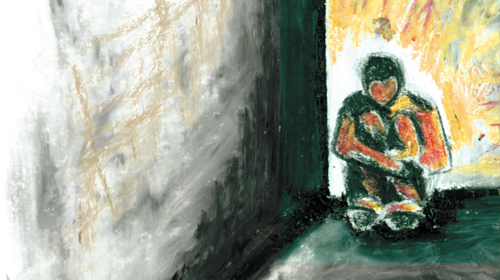
Imagine locking a teenager in a bathroom for an entire day, a week, a month, six months, a year, or longer. What would happen to that child? She would miss school. She wouldn't be able to exercise or burn off energy in a healthy way. She wouldn't be able to interact with other kids or adults. She would probably have a mental breakdown. She might even hurt herself. If a parent treated a child this way, most of us would agree that such actions would constitute child abuse. In Texas county jails — and the majority of jails across the country — such treatment is simply a matter of routine.
An important new report, , by researchers at the Lyndon B. Johnson School of Public Affairs at the University of Texas, exposes the terrible harms visited on children held in these facilities. The LBJ report finds that the majority of jails in its survey lock youth in isolation — often with less than an hour a day out of their cells. For these youth, the average length of stay in solitary is six months to a year or longer. While in solitary, education is almost nonexistent and mental health care infrequent. Children in Texas jails spend incredibly long periods of time isolated and alone with no prospect of rehabilitation.
While in solitary confinement, children's mental and physical health is severely compromised. The LBJ report notes the broad consensus among mental health experts that such long-term solitary confinement is psychologically harmful for adults. For children in solitary confinement, the impact is even more traumatic. Children experience time differently than adults, have a special need for social stimulation, and are damaged by forced isolation more quickly and severely than adults. It is also true that young people's brains are still developing, which places youth at a higher risk of psychological harm when healthy development is impeded. But the psychological harm is not limited to developmental issues — it often means life or death. As the report notes, the risk of suicide and self-harm, including cutting and other acts of self-mutilation, increases exponentially for children in adult jails who are than their counterparts in juvenile facilities.
Reviewing the data, the LBJ report notes "the impact of prolonged isolation may have mental health consequences that will make it difficult for these youth to reintegrate, and may increase the likelihood that they will recidivate." Solitary confinement hurts children and ultimately undermines public safety.
Given these obvious harms, why are jails in Texas and so many other states putting kids in solitary? The report notes that the practice of isolating youth arises from the fact that youth in adult facilities face the near-constant threat of physical and sexual assault by older prisoners. As a result, corrections officials place youth in isolation cells because they want to keep them safe and they have little choice because most facilities have few alternatives to protect youth other than solitary confinement. But we know solitary itself harms youth.
The lesson here is that kids simply don't belong and can't be kept safe in adult facilities. Last year the Texas legislature took an important first step to deal with this problem by passing , which gives jurisdictions the discretion to house kids accused of adult offenses in juvenile facilities while awaiting trial. Now that we have the concrete data from researchers at LBJ, it's clear that S.B. 1209 does not provide enough protection for youth confined in Texas jails. It's time for Texas to fill this gap and work to ensure that teenage offenders are kept in the juvenile justice system where they have a better chance of staying safe, returning home and becoming productive citizens. The rest of the country should then follow Texas's lead.
Learn more about solitary confinement: Sign up for breaking news alerts, , and .


